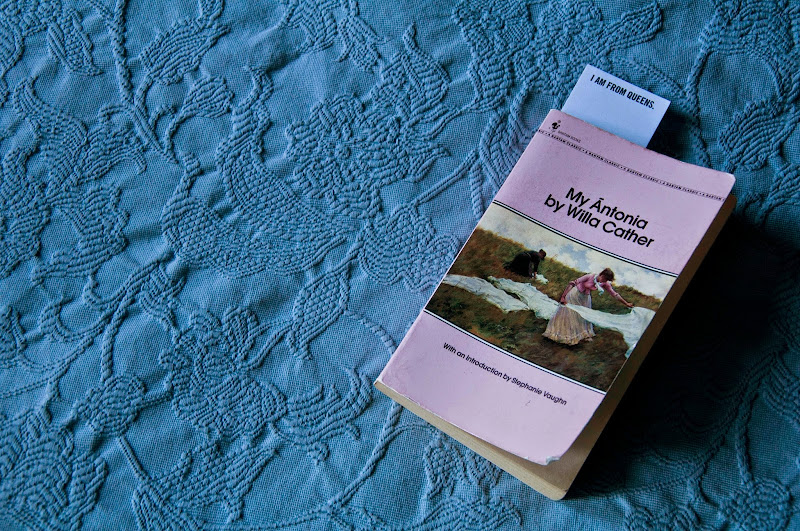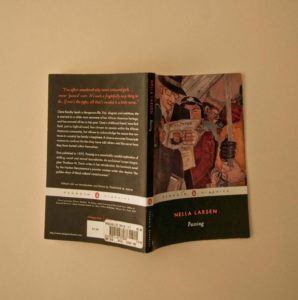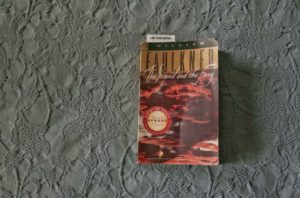On several occasions, I have found the introductions to novels a turn off——best read after one’s completion of the book. They tend to give too much away and annoyingly tell one what to think. So I approached Stephanie Vaughn’s introduction to My Ántonia gingerly. I must have skipped it when I read the book the first time. Vaughn gives just enough from the novel to prepare one for what is ahead. Her small but detailed background information on Cather does an excellent job of making one a little familiar with the author’s life experiences.
I have just now finished Chapter 7. Still very early within the pages. Jim Burden has just killed that big rattle snake and subsequently raised his status in Ántonia’s eyes, or in her own words he “is just like big mans.” She championed his bravery in suggesting that they drag the snake back with them for all to see, then occupied herself with narrating the story to all “with a great deal of colour.” I laughed when I read her account; “He fight something awful! He is all over Jimmy’s boots. I scream for him to run, but he just hit and hit that snake like he was crazy.” What happened was that Ántonia had been standing opposite Jim and upon seeing the snake behind him, pointed and shouted a warning in Bohemian, her language, which he did not know. (Though Jim is teaching Ántonia English, he has not shown any interest in learning Bohemian from her.) He turns around to find a serpent of “circus monstrosity” and “abominable masculinity” and of likeness in thickness to his leg. According to Jim the snake must have been sleeping until Ántonia’s screams. Jim did not run because he felt cornered and that relieved him of all reasonable thoughts. Anticipating the snake’s attack at any moment, he suddenly “run up and drove at his head” with the spade they had gone to borrow from their Russian neighbors. After he knew he was safe, he kept driving the spade into the snake out of sheer hate of it.
Jim was ten, Ántonia fourteen. Before his luck with the snake——subsequent events give him reason to credit his killing of the serpent, an act of providence——Jim was unhappy with the “superior tone” that Ántonia “sometimes took with” him; due to her being older and having seen more of the world than him. His bravery settled the score. But even before his defeat of the snake, Jim was not an ordinary ten year old. He had lost both parents and was now living with his grandparents. He often showed traits that compelled one to think him precocious.
I sat down in the middle of the garden, where snakes could scarcely approach unseen, and leaned my back against a warm yellow pumpkin…There in the sheltered draw-bottom the wind did not blow very hard, but I could hear it singing its humming tune up on the level, and I could see the tall grasses wave. The earth was warm under me, and warm as I crumbled it through my fingers. Queer little red bugs came out and moved in slow squadrons around me. Their backs were polished vermilion, with black spots. I kept as still as I could. Nothing happened. I did not expect anything to happen. I was something that lay under the sun and felt it, like the pumpkins, and I did not want to be anything more. I was entirely happy. Perhaps we feel like that when we die and become a part of something entire, whether it is sun and air, or goodness and knowledge. At any rate, that is happiness; to be dissolved into something complete and great. When it comes to one, it come as naturally as sleep.
–
Jane



